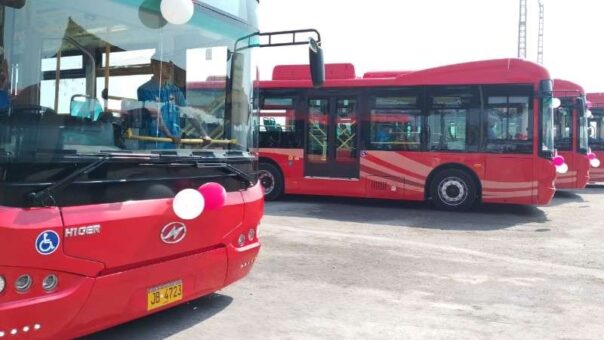Karachi Red Bus Service fares are set to increase significantly, with a 140% hike raising ticket prices from Rs50 to Rs120, sources told to PkRevenue.
The revised fare structure, featuring increases between 20% and 60% depending on the route, will take effect from February 1. Notices regarding the fare adjustment have been posted on buses to inform passengers in advance.
Senior Provincial Minister Sharjeel Inam Memon explained that the fare hike is part of a government strategy to reduce or eliminate subsidies currently provided for the service.
The government spends over Rs50 per passenger in subsidies, benefiting more than 100,000 daily commuters who use the Red Line buses. By reallocating these funds, authorities aim to purchase additional electric buses to enhance Karachi’s public transport network.
Memon emphasized that the fare increase is not intended to generate profit for the government but to alleviate the financial burden of subsidies.
The move comes amid broader efforts to modernize Karachi’s transportation system, including the planned introduction of double-decker buses along Shahrah-e-Faisal later this year. The procurement process for these buses is reportedly underway.
The minister also addressed delays in the Red Line Bus Rapid Transit (BRT) project, attributing them to utility relocations rather than provincial government inefficiencies. Despite these setbacks, Memon assured that the government remains committed to expanding public transport options.
Beyond transportation, Memon highlighted other development projects, including the Dhabeji Economic Zone under the China-Pakistan Economic Corridor (CPEC) and the upcoming inauguration of the Malir Expressway.
He also reaffirmed ongoing support for women-specific buses and electric vehicle (EV) buses to make Karachi’s transport system more inclusive and environmentally sustainable.
The fare hike is expected to spark mixed reactions from Karachiites, many of whom rely on the Red Bus Service as an affordable commuting option. However, the government maintains that the changes are necessary to fund long-term improvements and modernize the city’s transportation infrastructure.
